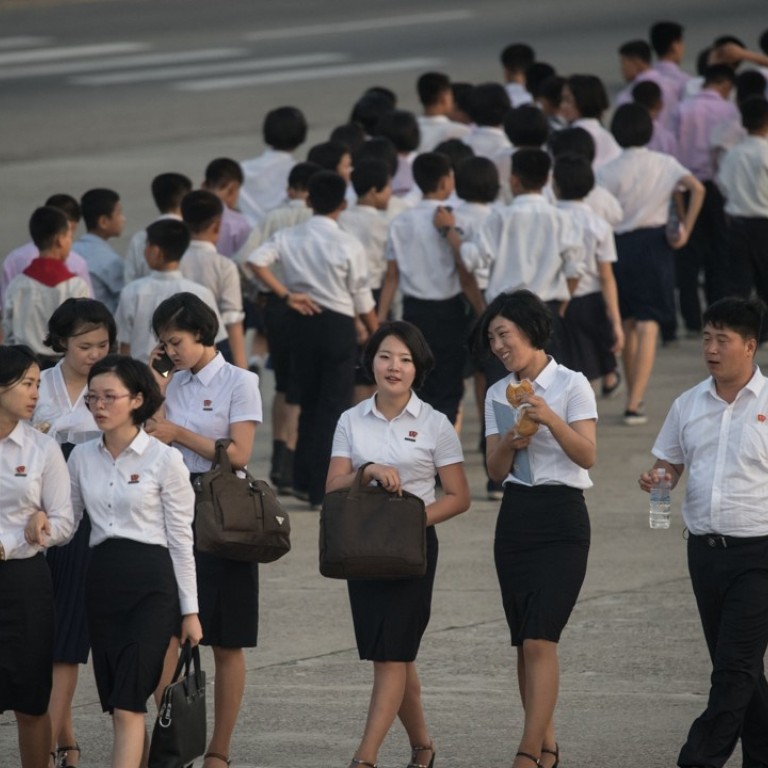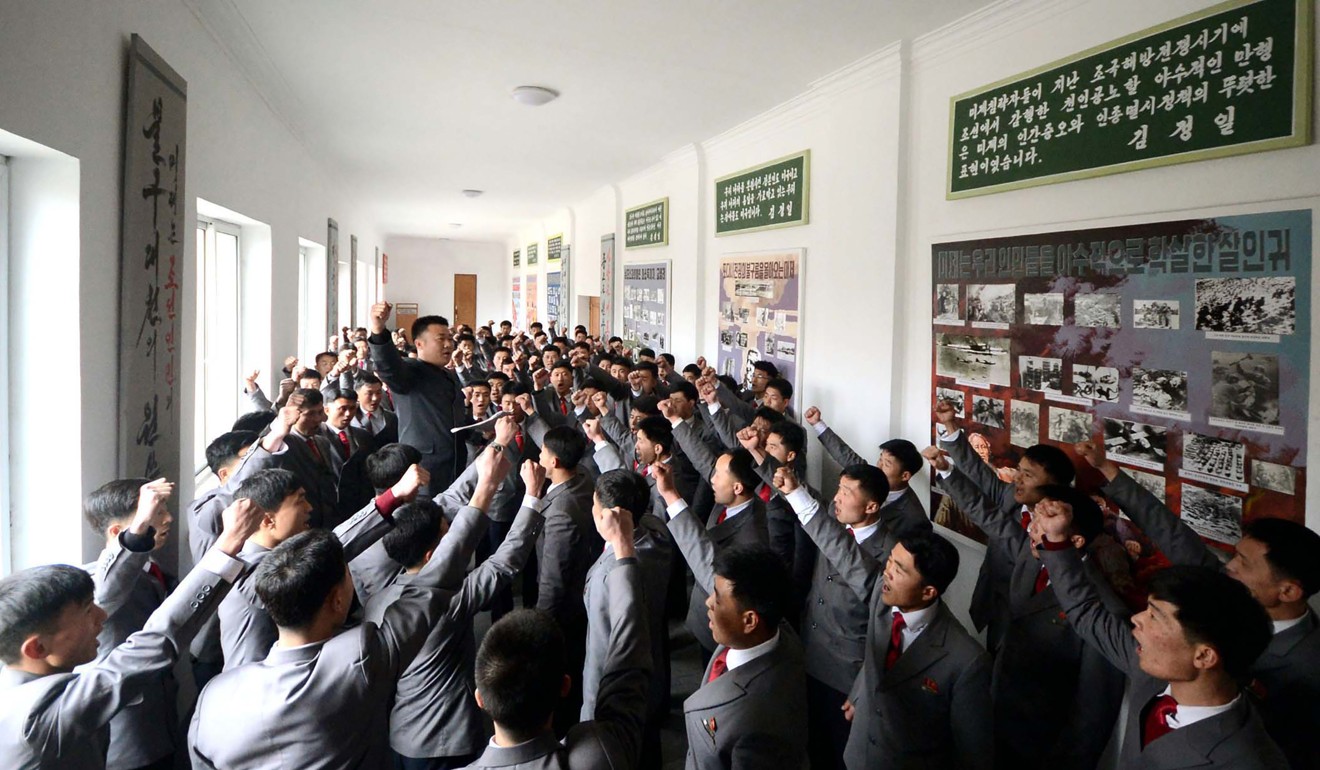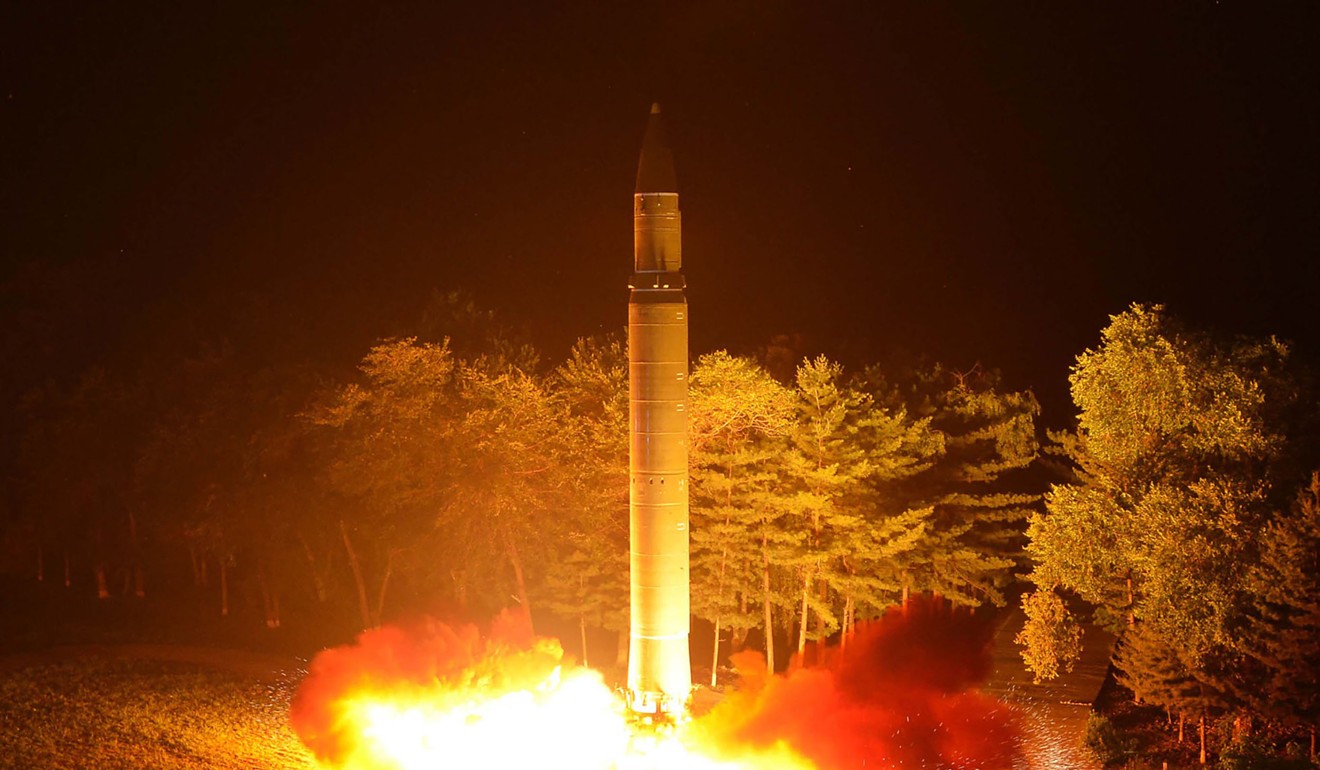
China prepared to end North Korea student exchanges if missile test crisis deepens
Officials struggling to find 60 volunteers willing to study in nuclear neighbour amid mounting tensions on Korean peninsula
China is prepared to pull out all students from North Korea and terminate a near-20 years old intergovernmental exchange programme should tension escalate following Pyongyang’s newest missile launch, according to one official in Beijing.
Li Gang, an official overseeing the student exchange programme at the China Scholarship Council, said on Wednesday that about 60 Chinese students studying languages in North Korea were returning to China this or next month.
He said the students were leaving because they had completed their seven-month exchange programme, and it was not directly linked to the latest missile test conducted by Pyongyang.
Wednesday night’s test involved what North Korea said was a new type of intercontinental ballistic missile with a range that could cover “all of the mainland US” and a “super-large heavy warhead.”
China will back tougher sanctions as North Korea threat grows, say analysts
The programme has been implemented without interruption since the early 2000s, but it could change at any time, according to Li.
The council, which manages Chinese government funding for mainland students studying overseas and foreign students studying in China, is receiving constant briefings about North Korea from China’s intelligence gathering agencies, Li said.
“We have been informed about the missile test, and we are concerned,” he said.
Li said the remaining Chinese students would be among the first to be evacuated if the risk of a war breaking out on the Korean peninsula became too high.
Li said the latest test put the Chinese students studying in North Korea at risk.
“If the intelligence assessment suggests a high risk of military conflict, we will immediately contact the Chinese embassy in Pyongyang and ask them to get our students out of the country as fast as they can,” he said.

Each spring the Chinese government sends about 60 undergraduate students to North Korea to study the language. In exchange Pyongyang sends an equal number of students to China.
Their tuition and living expenses are provided by the two governments.
It was unclear how many Chinese students were currently studying in North Korea, but Li said the protection scheme should cover all students.
He said the exchange programme was “entirely voluntary, we never force the students to go against their will”.
The undergraduate exchange programme was one of the most stable intergovernmental programmes remaining between China and North Korea. The arrangement has survived the ups and downs between the two countries for nearly 20 years, according to Li.
But if the situation deteriorated to the point of threatening the safety of Chinese students, the Chinese government would terminate the exchange.
“We are ready to make an adjustment anytime,” he said.
China, US military hold talks amid tensions over North Korea
But the government’s assurances about the students’ safety received a cold response from teachers, students and parents.
About two weeks ago, the Chinese government launched a new screening process to send another 60 students to North Korea, but they struggled to find enough candidates.
By contrast, the Chinese embassy in Seoul said around 63,000 students were currently studying in the South.
Wang Xueyao, an official at the office of international exchange and cooperation at Shandong Normal University in Jinan, said the university had been instructed by the central government to recommend at least one candidate.

It would be the first time the university had sent a student to North Korea, she said.
“Some teachers are very concerned about the safety of our students,” Wang said.
The university has a few dozen students studying the Korean language.
Those previously going abroad all chose to study in South Korea, where the standard of living was similar to that at home, and there is easy internet access.
The university eventually managed to find one female student willing to go and obtained approval from her parents.
The student is likely to leave China in March or April and spend about seven months, or two semesters, studying at a North Korean university.
“We can’t afford to get more students involved in this. The risk is too high,” Wang said.
Nuclear fears see more Chinese visitors giving North Korea the cold shoulder this winter
A recruiting official with Nanjing University in the capital of Jiangsu province said that so far no students had applied to go to North Korea.
“I have a stack of application forms over my desk, none going to North Korea,” said the official who did not give his name.
The application will be open until sometime next month, and some students might apply just before the deadline, according to the official.
“But we won’t force our students to go to North Korea if nobody wants to go,” he added.
An official in charge of international exchange programme at Yanbian University in Jilin, a province on the North Korean border, said the university has sent a number of students there over the last few years on government scholarships.
“Security risks have always been our top concern. We feel like we are walking on thin ice,” said the official who requested not to be named.
“If the students get in trouble we won’t be able to face their parents.”

